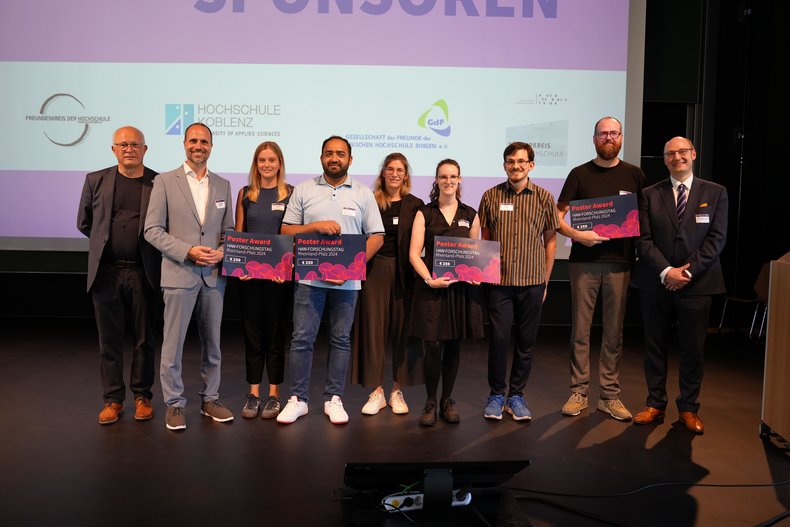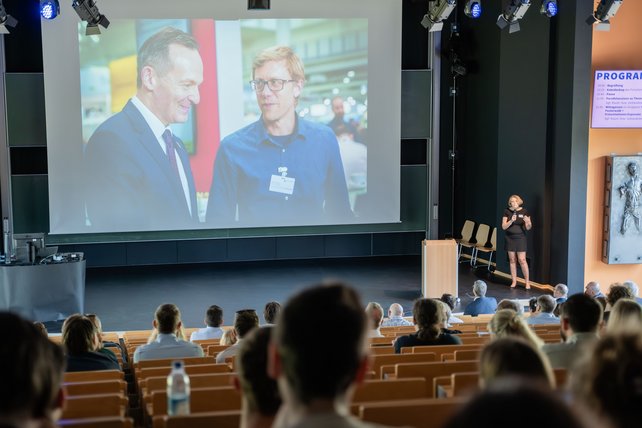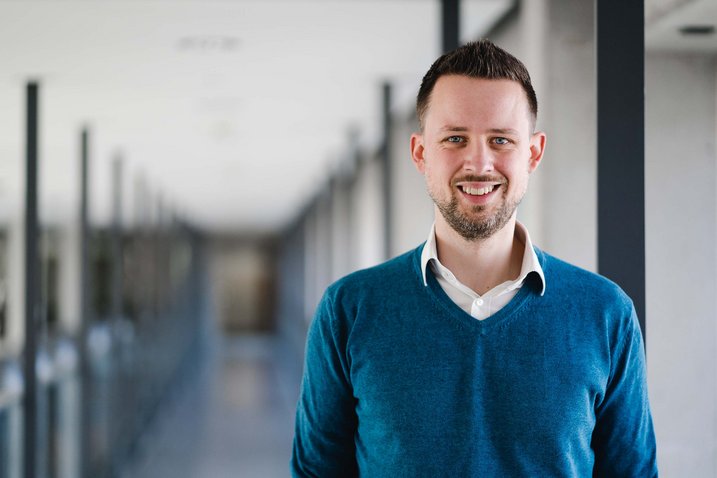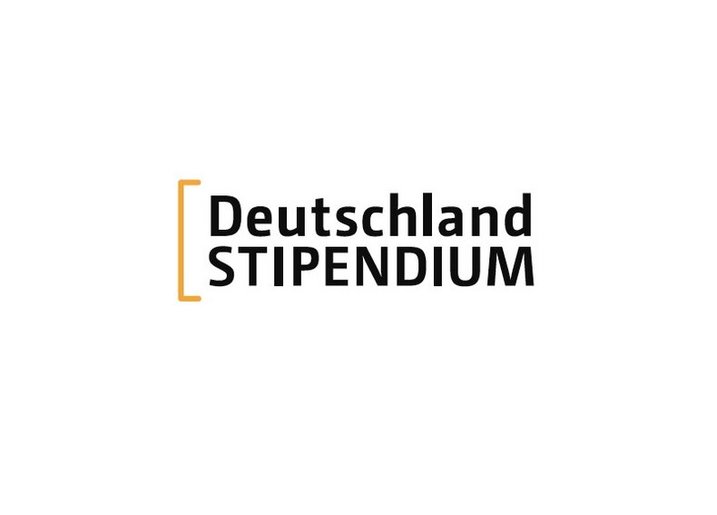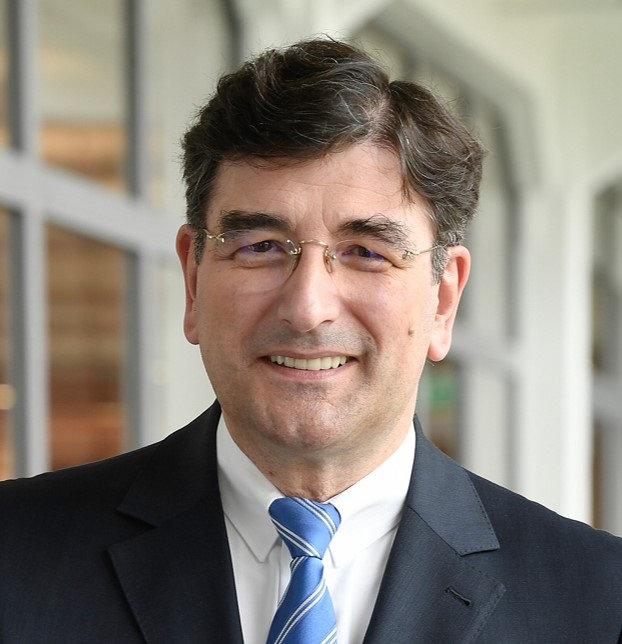At the first University of Applied Sciences Research Day “Future is WE – Science, Innovation, Rhineland-Palatinate”, the universities of applied sciences presented their diverse research projects. This year's host for excellent science and committed researchers was Kaiserslautern University of Applied Sciences on the Zweibrücken campus.
Over 200 participants from eight universities of applied sciences – Bingen, Koblenz, Ludwigshafen, Mainz, Trier, Worms and Kaiserslautern – came together on June 25 to showcase a broad and diverse range of research activities in the state. The event included presentations of joint projects and examples of projects from the fields of design, informatics, life sciences, technology, and natural sciences, as well as business, social issues, and health. Classical lectures, poster sessions, and a variety of exhibits created a lively and exciting picture of the Rhineland-Palatinate research landscape.
Clemens Hoch, Minister for Science and Health in Rhineland-Palatinate, emphasized the importance of research and transfer through the universities of applied sciences for Rhineland-Palatinate as a science and business hub: “ In view of the increasingly complex issues of the future, the research and transfer of the universities of applied sciences is of great importance. I am therefore very pleased about this state-wide research day, which offers an excellent platform for mutual reflection, networking, and the forging of new projects and collaborations.”
In his welcome address, Prof. Dr. med. Karl-Herbert Schäfer, Vice President for Research and Transfer at Kaiserslautern University of Applied Sciences, emphasized that in addition to the diverse research approaches, real cutting-edge research is also being conducted: “Today, projects with special appeal, known as lighthouses, are being presented as well as transfer activities and funding opportunities.”
Prof. Dr. Anett Mehler-Bicher, Vice President, Research and Transfer at Mainz University of Applied Sciences, then presented the four main areas of research and one area of potential at Mainz University of Applied Sciences in a kaleidoscope of research. In the subsequent parallel sessions, Cédric Roussel presented Erklärbare Künstliche Intelligenz für räumliche Daten (Explainable artificial intelligence for spatial data) and Alexander Rolwes Geovisuelle Ansätze zur Analyse raum-zeitlicher Korrelationen in urbanen Anwendungsfällen (Geovisual approaches for analyzing spatio-temporal correlations in urban use cases), both i3mainz, in the field of informatics. In the area of design, Prof. Florian Jenett presented the project KITeGG – KI greifbar machen und begreifen: Technologie und Gesellschaft verbinden durch Gestaltung (KITeGG – Making AI tangible and understanding it: Connecting technology and society through design). The session on business/social affairs/health was moderated by Prof. Dr. Anett Mehler-Bicher, where Almut Plath (Catholic University of Applied Sciences Mainz) presented the EMPOWER project Biographiearbeit in Senioreneinrichtungen: Nachhaltige Anregung von Gesprächen und Erinnerungen durch multimodale Präsentation der Lebensgeschichte (Biography work in retirement homes: Sustainable stimulation of conversations and memories through multimodal presentation of life stories), which is being conducted in collaboration with Mainz University of Applied Sciences.
The innovative and pioneering projects and initiatives of the Carl Zeiss Foundation were particularly highlighted. In addition to an introduction to the funding opportunities, four CZS-funded projects were presented as examples. These included the i3mainz-based project Rafviniert: Ein Projekt zur Raumintelligenz für die integrierte Versorgung von Seniorinnen und Senioren in ländlichen Quartieren (Rafviniert: A project on spatial intelligence for the integrated care of senior citizens in rural neighborhoods), which was presented to the interested audience by Florian Brunn. The subsequent poster session concluded with the award ceremony for the best poster contributions.
“All in all, a successful event for networking across university boundaries, which once again demonstrated the excellence of universities of applied sciences,” summarized Prof. Dr. Anett Mehler-Micher.
The next nationwide Research Day will take place in 2026. The host university is yet to be announced.
Conference transcript of the University of Applied Sciences Research Day Rhineland-Palatinate 2024
Impressions:
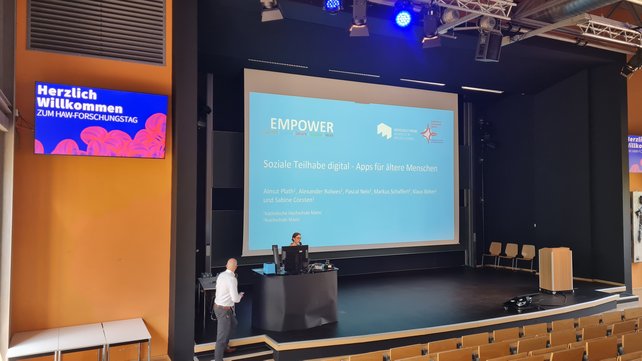
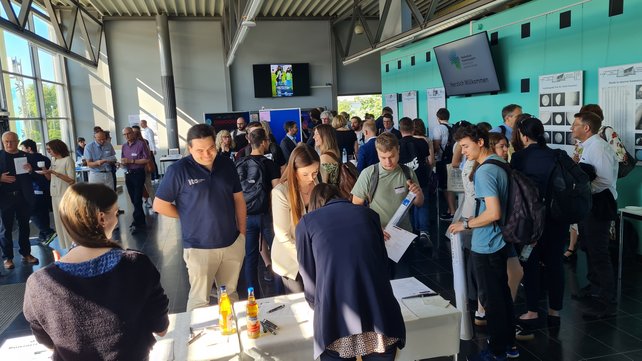
You can find more information here: https://www.hs-kl.de/forschung/weiteres-zur-forschung/haw
